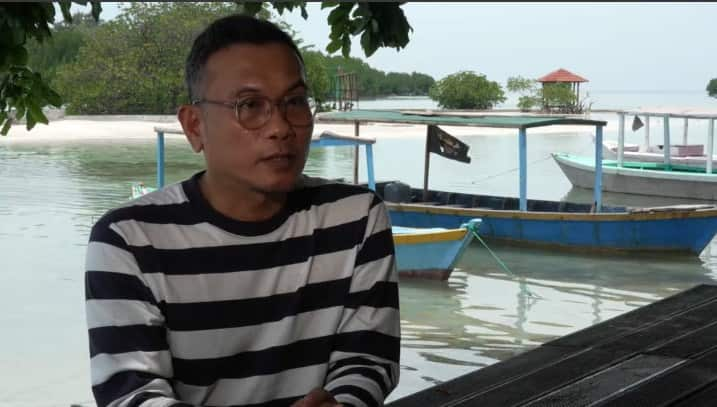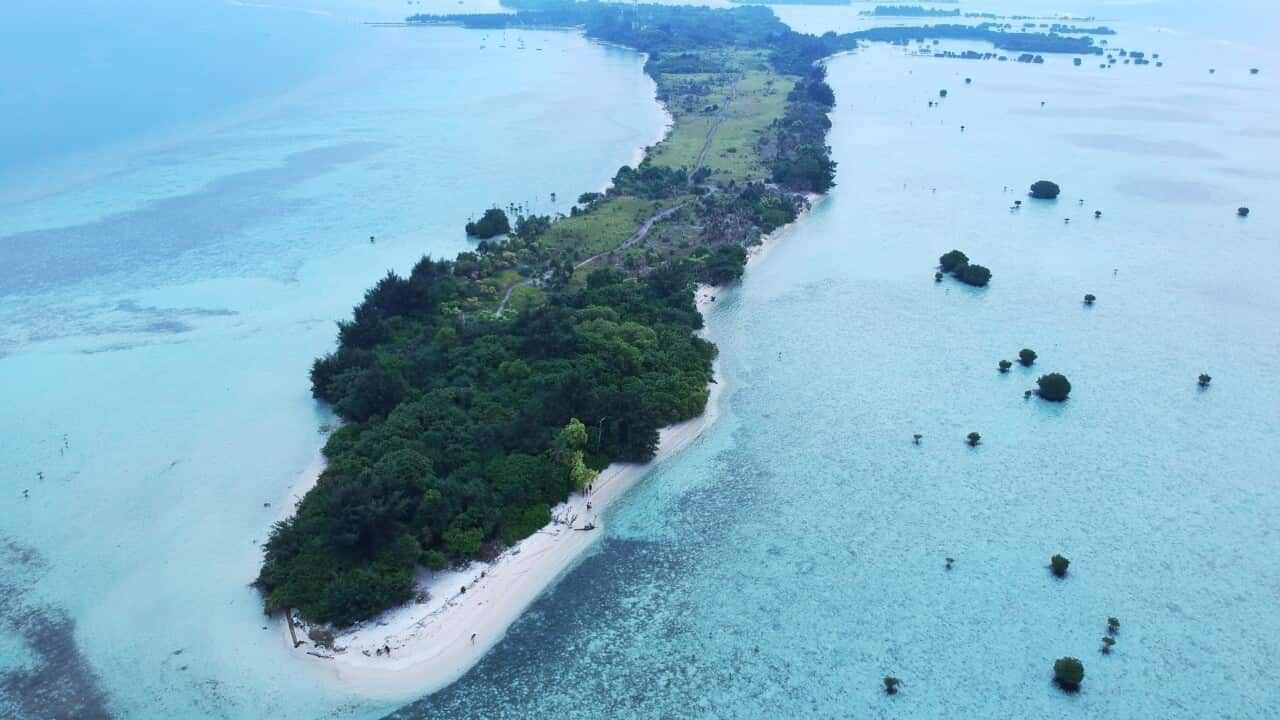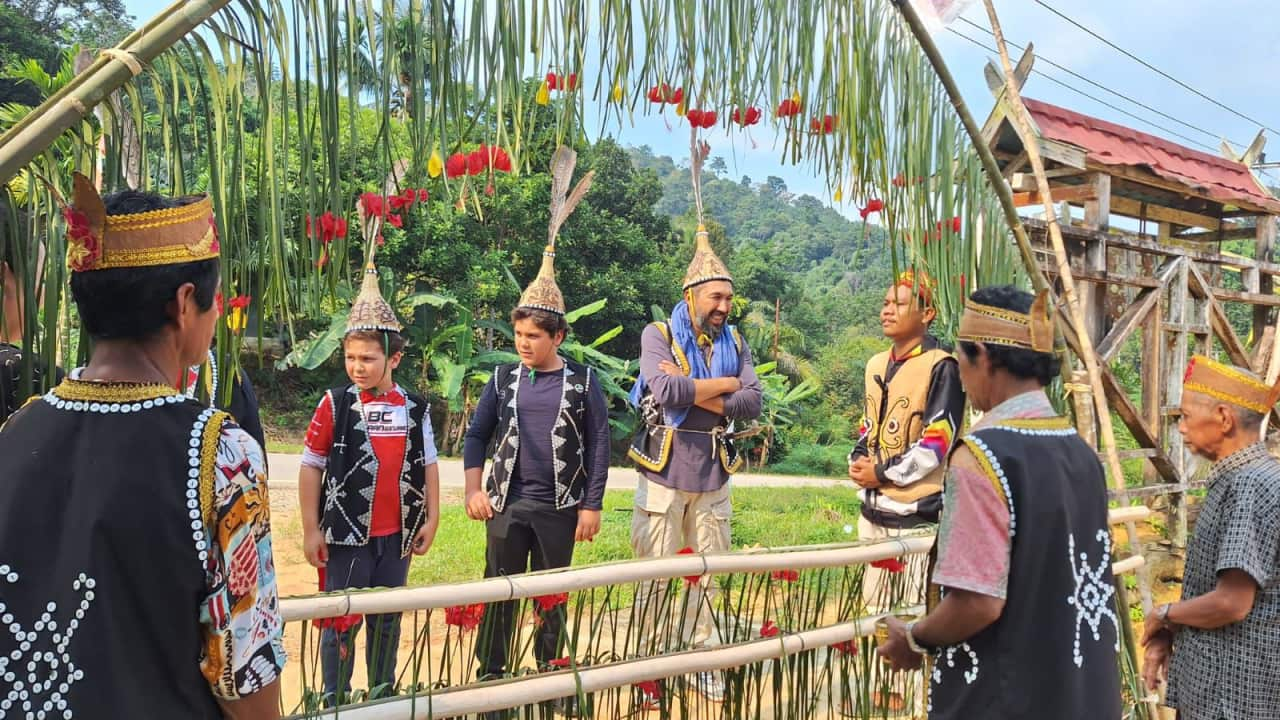Pari Island is one of about 114 small islands in Pulau Seribu, north of Jakarta, north of Indonesia's capital.
The island is one of the tourist attractions in the lively Thousand Islands with several marine biota very diverse types of fish and turtles.
However, Pari Island faces various environmental, social, and economic problems that increasingly affect its sustainability.
Tourism pressures, changing shorelines, land ownership issues, and increased waste pose a real threat to the quality of life of local communities as well as the sustainability of the island's ecosystem. This study aims to uncover the dynamics of the problem, analyze the factors that cause it, and evaluate the mitigation efforts that have been made.
Tubagus Saleh Ahmadi, Head of Planning, Monitoring, Evaluation and Learning WALHI - Wahana Lingayun Indonesia explained to SBS Worls News the challenges of Pari Island's extremely complex environment.

A major environmental problem that is getting worse, relating to the climate crisis and agrarian/corporate development conflicts. The increasing amount of tourism also leads to litter and hygiene problems.
Pari Island residents are experiencing the direct impacts of climate change, particularly more frequent and more severe sea-level rise (rob), causing flooding that submerges homes and infrastructure.
Erratic extremes of weather also reduce fishermen's catch as well as damage fisheries and seaweed cultivation, which are the main livelihoods of residents.
Residents of Pualu Pari and other small islanders blame big companies such as Holcim as big contributors to climate change and have put their homes at risk.
Holcim (in Indonesia known as PT Solusi Bangun Indonesia Tbk) is a Swiss-based multinational company engaged in building materials, including cement, concrete, and aggregates. The company carried out marine sand mining around the small islands three years ago.
According to a study, the company has produced more than 7 billion tons of CO2 since 1950, which accounts for 0.42 percent of all global fossil fuel emissions and more than double Switzerland's emissions since the start of the industrial revolution.
A group of Pari Island residents have decided to take legal action against the Swiss company, Holcim. They demanded “compensation for the climate damage they have suffered, financial contributions to flood protection measures, as well as the rapid reduction of Holcim's CO2 emissions”.
Tubagus Saleh Ahmadi said that this is the first lawsuit launched by Indonesians and it is considered an important lawsuit demanding justice based on the effects of extreme weather due to climate change.
Listen to SBS Indonesian every Monday, Wednesday, Friday and Sunday at 3pm. Follow us on Facebook and Instagram, and don't miss our podcasts.




